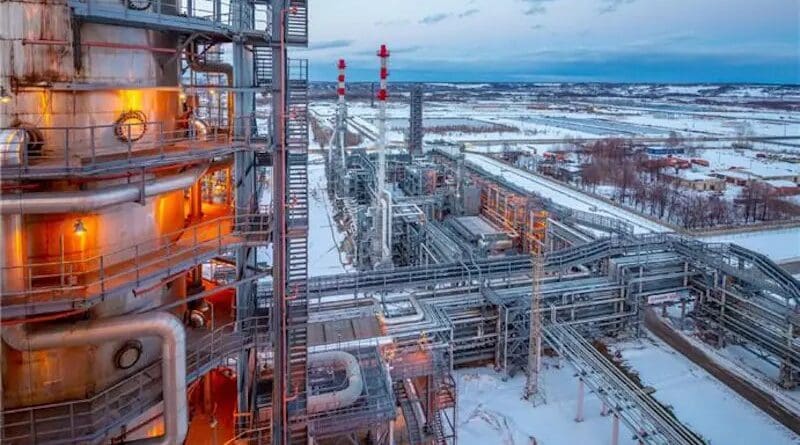G7 To Be Ready With Russian Oil Price Cap Details By December 5, US Official Says
By EurActiv
By Alexandra Brzozowski
(EurActiv) — G7 countries will be ready with all the operational details of a price cap on Russian seaborne crude oil by 5 December, when the measure is scheduled to kick in, a senior US official confirmed on Friday (4 November).
The G7 agreed in principle on the price cap in September in response to Russia’s war in Ukraine, but ministers over the past weeks have still been working on the final details of its implementation.
Speaking to reporters during his visit to Brussels, US ambassador James O’Brien who heads the US State Department sanction coordination against Russia, said technical talks were underway on issues of pricing and governance of the cap.
“The key date is 5 December,” O’Brien said, adding he thinks “the price cap has been discussed for long enough that market participants understand that it is coming, and they’re providing views on the best way to implement it.”
O’Brien declined to comment on details and said the whole package would be ready in time and “certainly be ready by 5 December, and we’ll address those issues,” he said.
“It’s very simple. It’s just insurance limitation,” O’Brien said.
“So somebody running a tanker knows: they know how much oil they have, they know how much coverage they will have,” he added.
The price cap, backed by the US, Japan, Britain, Canada, and the EU, will not allow shipping and insurance companies to provide services for tankers carrying Russian crude unless the oil was sold at or below a set price.
The maximum price, which is still to be set by the G7, is to be just above Russian production costs to limit Moscow’s revenues from oil sales and reduce its ability to finance its invasion of Ukraine.
But insurance and shipping companies, wary of breaking the future price cap so as not to become subject to secondary sanctions themselves, say they also need to know, among other things, at which point the sales price would be recorded, how it would be verified and what happens to cargo when there are objections raised.
Western officials also say the initiative’s success will depend on how many countries outside the G7 choose to sign up or buy at or below the cap.
China and India are seen as two key players, given their acquisition power and long-standing oil purchases from Russia.
Moscow, however, has vowed not to sell oil to any country that implements the cap.
“India and China are major importers of Russian oil. Our goal is to see Russian oil reach the market. India and China are very tough negotiators on price, so I expect they will not want to pay full price,” O’Brien told reporters in Brussels after meetings with European Commission officials on sanctions.
“They’re very interested in what will be allowed and what will not as a part of [the price cap],” he added.
US Secretary of State Antony Blinken, speaking to reporters after a two-day G7 meeting in the western German town of Muenster, said the price cap would help limit Russia’s gains from energy sales.
“Russia will make whatever decisions it makes, but I think it will have an interest in continuing to sell energy,” Blinken said.
“This is a good mechanism for both ensuring that energy remains on the market, but the gains that Russia gets from it have a ceiling,” he added.
Asked if he could assure the consumers that the mechanism won’t lead to an increase in gas prices, he said: “We will see how this plays out.”

